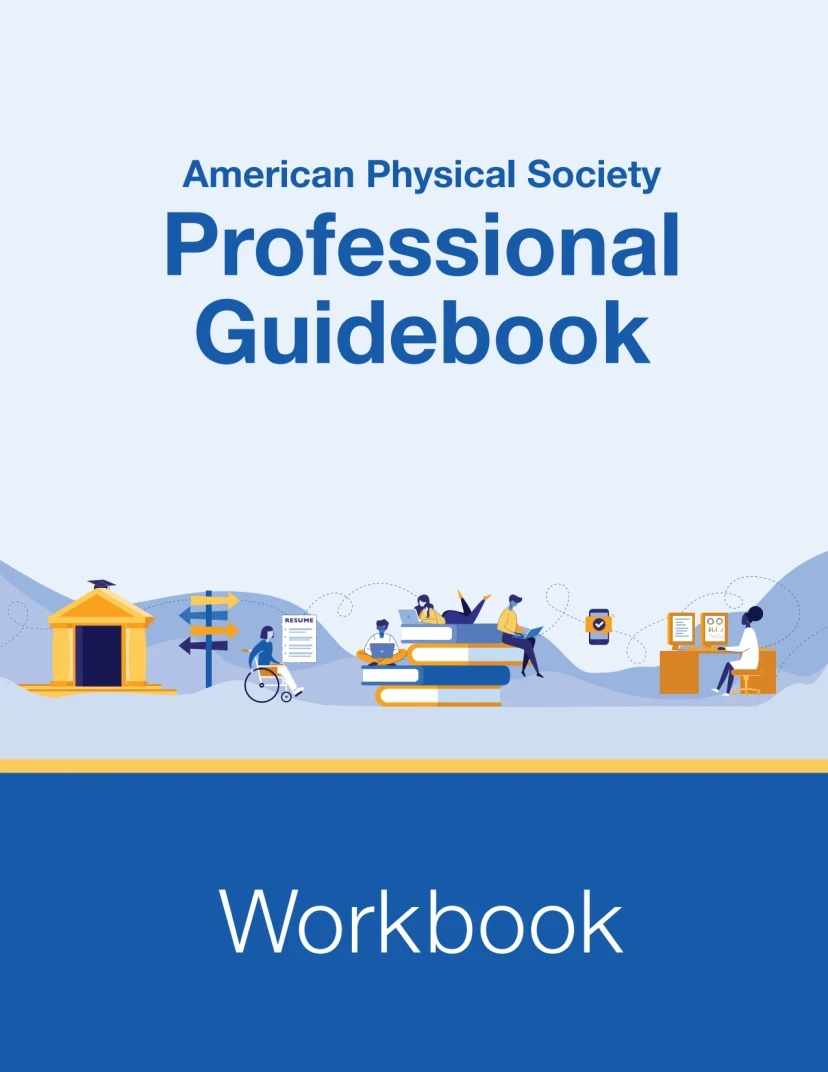How to Put Together an Effective Physics Resume

CVs versus resumes – know the difference!
When you uncover a job opportunity that aligns with your skills, you will need to put together a resume to include with your application. In the United States, a resume and a CV are two different documents and may be in a different format from what you are used to. Familiarizing yourself with the differences and which document to submit will help ensure your success.
Many academic and national lab research positions require a CV from candidates — but for almost every other job, especially industrial jobs, you will be writing a resume.
What should your resume do?
The purpose of a resume is not to get you a job — it is to get you an interview. You have the top half of the first page to get the hiring staff's attention, so you need to connect the dots as clearly and concisely as possible between your own skills and those described in the job description.
You should also be prepared to write a separate resume for each job you apply for.
What makes a resume effective?
An effective resume draws specific attention to your skills, rather than titles or degree information. It cuts out all information that isn’t directly related to the skills being asked for in the job description. Therefore a skills based resume, with sections organized by specific skills, is the best format for communicating relevant information to a non-academic employer.
Difference at a glance
In the United States job market, CVs are:
- Comprehensive: They include most professional relevant details of your life.
- General: They do not specifically emphasize a particular area of experience or expertise.
- Lengthy: A CV can be several pages long.
Resumes in the United States are:
- Limited: They describe a limited subset of your expertise.
- Focused: They include skills and experiences that are relevant to a specific job description.
- Short: Ideally a resume is one page long (two pages maximum).
Important differences to note for US norms for resumes as compared to many other countries:
- Generally do not contain photos, birthdates, nationalities, civil status or a list of hobbies
- Formatted for US Letter paper sizes and not A4 which is used in many other countries
- You only need to capitalize the first letters of your first and last names
- The most common degrees in the US are Bachelors, Masters and PhD. It will be important to find the equivalent if your degree is called something else. For example, BAC + 4, Licenciatura, and First Cycle Degree are generally considered equivalent to Bachelors degrees in the US
Be aware that a resume in the United States is equivalent to a CV in Europe and other areas of the globe.
To learn more about US careers as an international physicist, watch the webinar.
How to write an effective resume
For tips on how to finish putting together an actual skills based resume, watch this video tutorial.
Resumes & cover letters
Watch this clip for great advice on writing a compelling resume or CV.
Cover letters
The cover letter is an extremely important part of your job application packet. It is your opportunity to reiterate the ways your experiences and skills qualify you for the job, and to challenge employers' preconceived notions of you. Cover letters are also a perfect way to address details of your resume which may look strange to an employer such as employment gaps, or a background which is quite different from the one being sought in the job description.
Compose your cover letters with the same care and consideration as you would put towards your resume or CV.
Get feedback!
After you have gone through the process of putting together a draft skills-based resume and cover letter, share the job description with a trusted friend and ask them to give you tips on how both documents can be improved. It’s okay if your friend doesn’t have the same background as the job description requires. In a certain sense, it’s better because they will more accurately represent the reaction of staff who are non-specialists in the company who might see your application first.
Match skills to job description
Pick one of the job postings you identified and highlight the skills. Next, create a list of skills that you have acquired that match. Structure your list so that it's under common headers, e.g. Data Analysis Experience, Programming Experience, etc.
Secure interviews effectively
Referring to the previous job posting, reflect on what you would like this employer to know. For example, why you are passionate about this position, or how you might address concerns. Use these themes to compose paragraphs in your cover letter.
